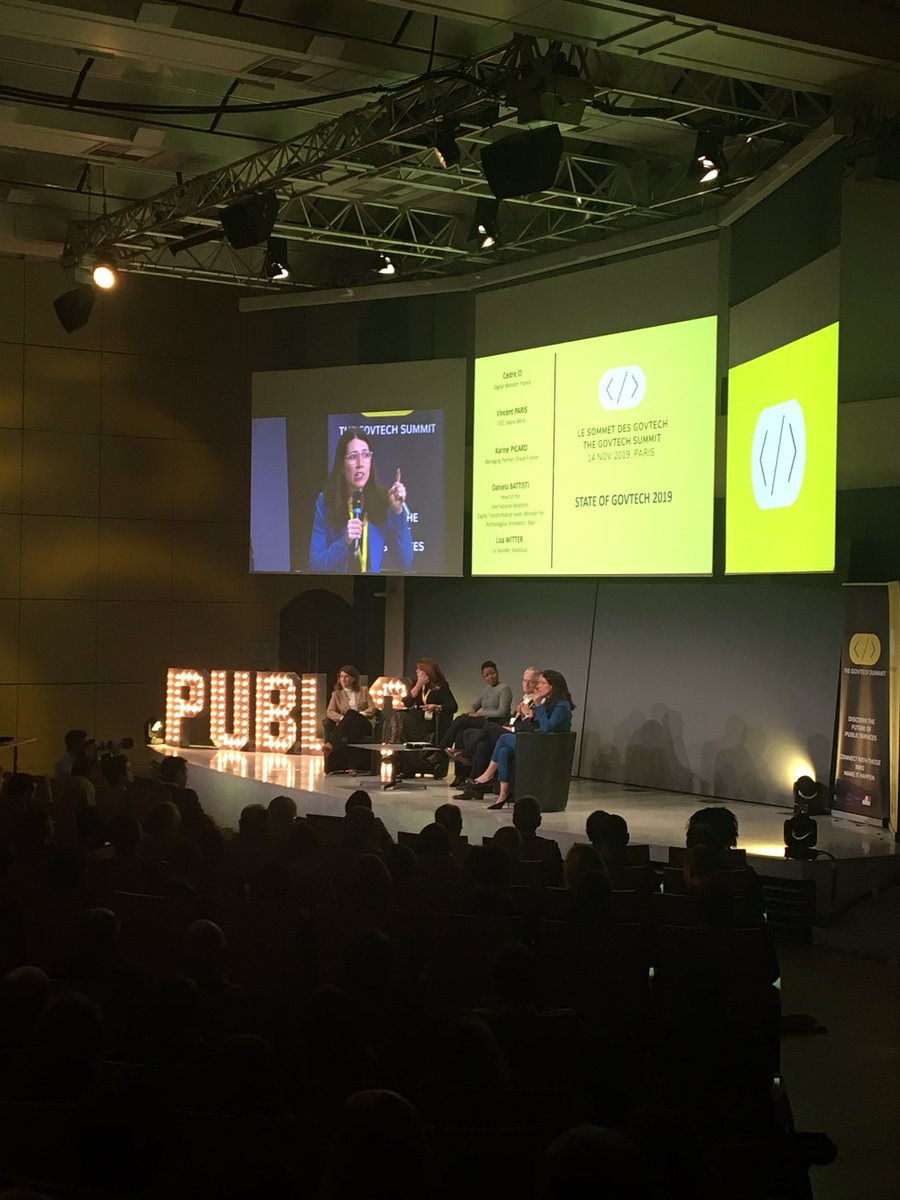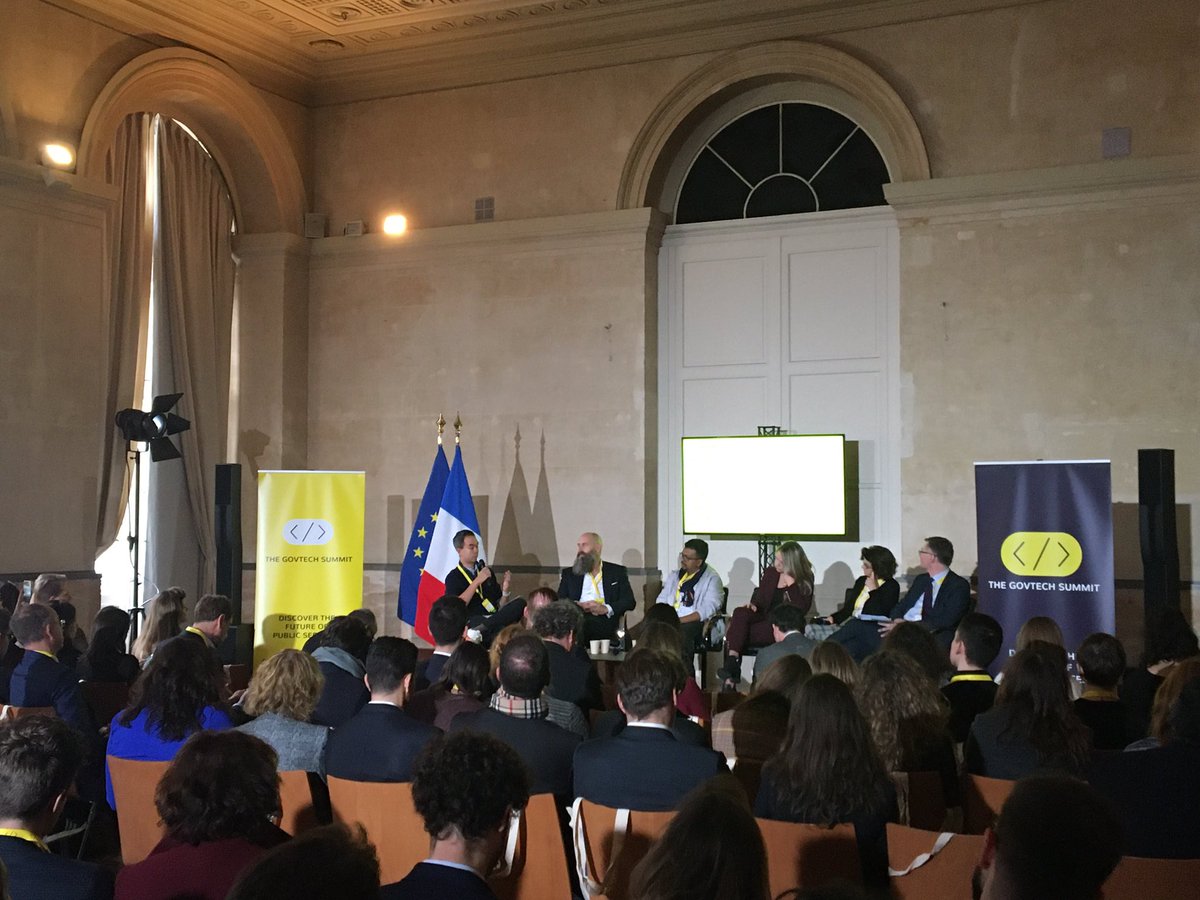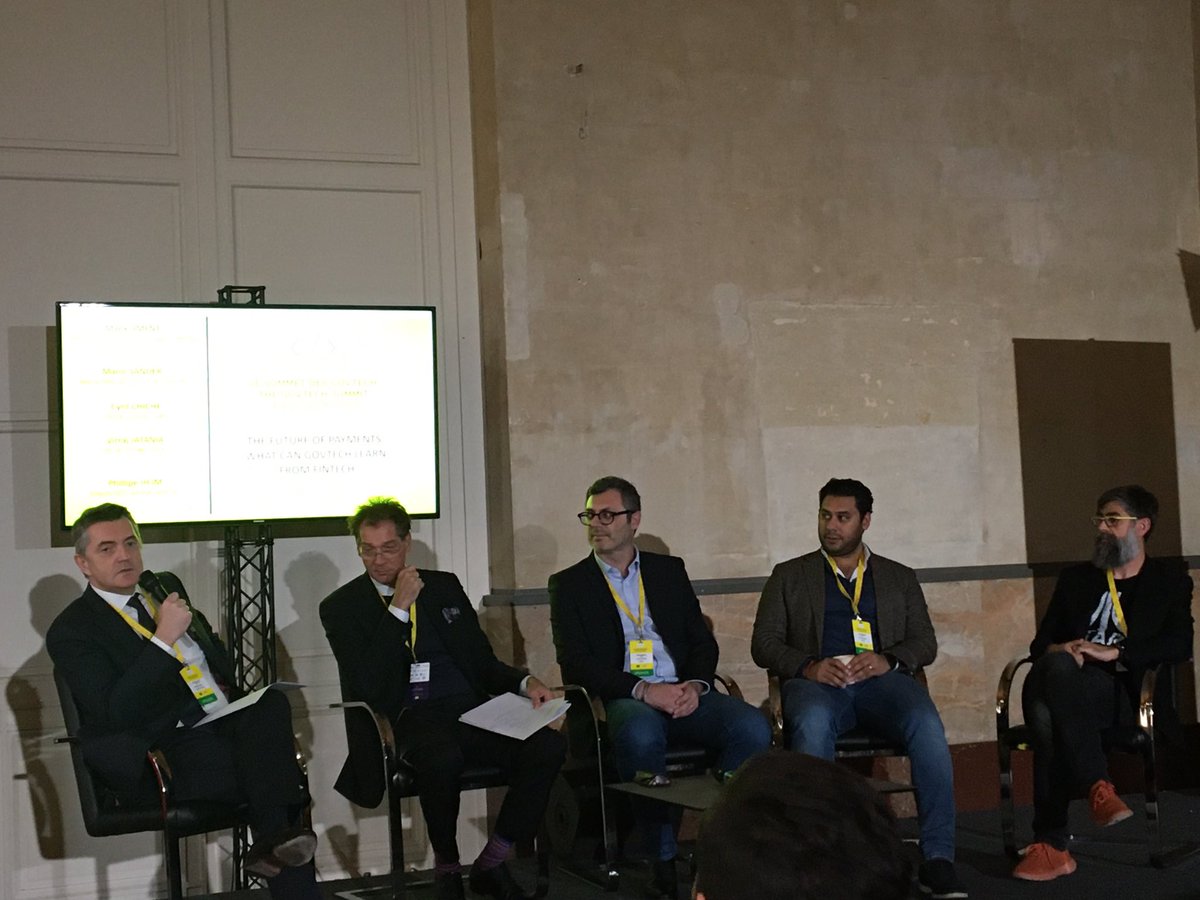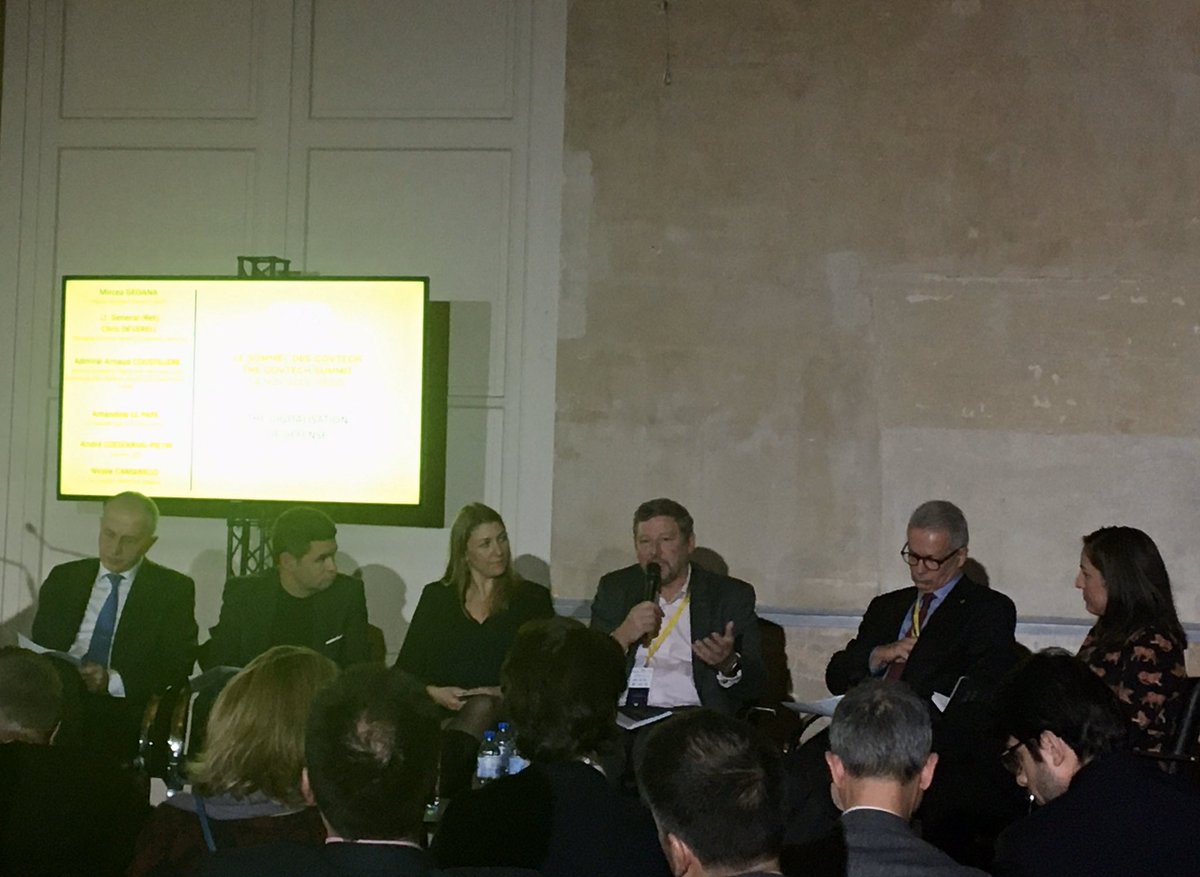En direct du #GovTechSummit (@SommetGovTech, @PUBLIC_Team), l’occasion d’imaginer le gouvernement de demain. 🚀

Marie-Barbe Girard : La commande publique représente 200 millards d’euros (8% du PIB). Le marché de la GovTech représente 16 milliards d’euros.
Marie-Barbe Girard : La collaboration entre les start-ups et les acteurs publics amène des résultats concrets. Par exemple, @doctolib a permis de réduire de 8% les RV non honorés.
Depuis 2012, 700 start-ups GovTech ont levé 1,53 Md€ avec le domaine de la santé qui représente plus de 50% des levées de fond effectuées.
@axellelemaire Il faut redéfinir un objectif public clair sur l’investissement public dans la GovTech. Aujourd’hui, c’est 2%, il faudrait que cela représente 10%
Au sein de Pôle Emploi, l’idée a été de coopérer avec les start-ups avec entre autres la création d’API, la possibilité de pitcher à la direction de Pôle Emploi, l’adoption de @Talentsoft pour les problématiques RH.
La fondatrice @NewVectorHQ présente sa solution de messagerie sécurisée basée sur une plateforme open source.
Il est difficile de mettre en place un engagement longue durée avec les acteurs publics.
Le gouvernement souhaite de plus en plus s’appuyer sur des solutions open source. En outre, le coût des solutions proposées par les startups est souvent moins élevée que celles proposées par les entreprises du marché.
Pour le financement de @NewVectorHQ, les investisseurs sont plus réticents quand les start-ups travaillent avec les gouvernements.
The starting point : why should a difference exist between the public and private sectors ?
The political point of view of open data : concrete promises were made to the citizens. The data belongs to the person and not the government.
30 years ago, no one had a bank account. It was decided to develop it. Besides, internet access was developed in the entire country to make online public tools available to everyone.

@nikolaiastrup (Minister of Digitalisation, Norway) : «A trustworthy AI is going to be the key.»

@nikolaiastrup : learning about the issues raised by new technologies should be included in the syllabus along one’s education.
Marc Warner (CEO of Faculty) : 3 categories : regulation, education (good practice), technologies to make everything safer.
It works for cars, why not for AI ?
Jo Deblaere (COO of @Accenture Europe) : we need to explain the results and understand that 100% accuracy isn’t possible all the time. The excellence shouldn’t become the enemy of the good.
@nikolaiastrup : AI is putting into question our understanding of culture and education. Do we want to change the way things work ?

There is a need of a trustworthy entity. For instance, all La Poste‘s employees take an oath to protect data.

Mario Sander (@WorldBank) : one of the challenges is to connect all African business to the internet by 2030. This isn’t enough, they also should get the skills needed.
Cyril Chiche (CEO & Founder, @applydia) : one need to have sandboxes to test out new solutions.
Regulation is key, but has to be relevant.
@virrajjatania (CEO & Founder of Pockit) : universal credit was launched in the UK. Normally, they wait for 6 weeks to get the payment and the government is trying to reduce it. A lot can be done.
Maex Ament (@GreensillCap) : employees get paid at the end of the month. There are solutions to reduce the delay of payment in that case.
Philipe Heim (Deputy CEO, @SocieteGenerale) : in Africa, 25% of the population have a bank account. Financial inclusion involves the ability to make payments.
Maex Ament : if we have stable coins made by every country, it might not solve anything. Cryptocurrencies are definitely going to improve financial inclusion.
Instant payment will improve the lifes of a lot of people, but isn’t the solution to everything.

Rune Simensen (@helsesorost) : The digital journey just started. Focus has been put on the intern processes, but the focus is going to be on the patients.
Newsha Ghaeli (@BiobotAnalytics) : building a product for governments is a real challenge.
Adam Wolf : the existing solutions might not match the needs of the health sector. The innovation cycle has to be real quick.
Rune Simensen : we need to be practical by making sandboxes for instance. One needs to demonstrate the product and what it brings.
Ida Tin (@clue) : nobody understands how health data is driving through the different systems. We need to figure out how data can work for us in this sector.
@florence_parly : innovation should be one of the top priorities. It is a matter of national sovereignty, because it’s no longer governments how drive innovation, but startups, private companies.
@florence_parly : 100 millions will be invested in AI each year. An AI roadmap has been created.
A cloud strategy has been developed in order to have a private owned cloud.

General (Ret) Chris Deverell : as a general assumption, the UK Minister of Defence has been slow to adopt digital 2.0 (blockchain, quantum, etc.).
Amandine Le Pape (@NewVectorHQ) : the evolution is hard to implement.
André Loesekrug-Pietri (Founder of JEDI) : technologies are carrying values. The way European councils work didn’t change. The change is unlikely to come from within.
Mircea Geoana (Deputy Secretary General, NATO) : a roadmap on distributive technologies has been created. In the implementation process, the values of our society should be respected.
Admiral Arnaud Coustillère : there is a need to have data scientists, analysts, hackers and so on.
The digitalisation is done through the same processes used in the private sectors.
















